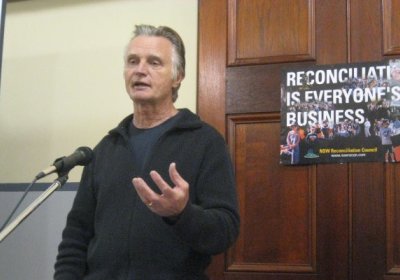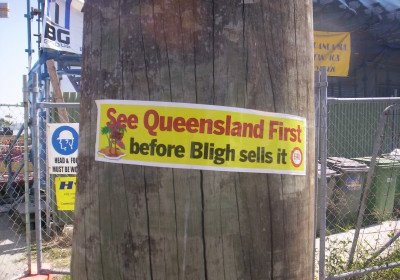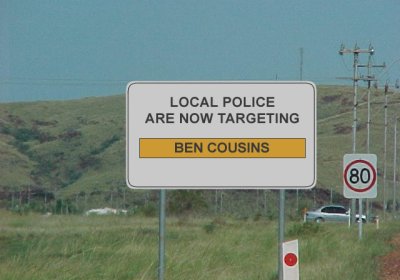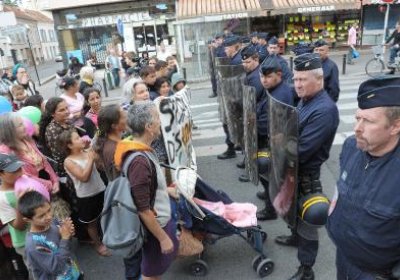I am a committee member of the Human Rights Alliance and a trustee of the Deaths in Custody Watch Committee WA. Through my role in both during the past couple of years, I have been stunned by the fact that Australia has one of the world's worst deaths in custody records.
There are more non-Aboriginal deaths in custody than Aboriginal deaths. But the rate of Aboriginal deaths in custody is higher than in South Africa during the peak of apartheid.
Democracy
The following speech was delivered by Jeff McMullen to a September 8 meeting in Parramatta, organised by Reconciliation for Western Sydney.
The Socialist Alliance national council meeting on September 5, involving 72 members from around the country, grappled with the new and intriguing political situation opened up by the August 21 federal election result.
At the time, it was unknown who would form a minority government.
But it was already clear that the result presented a challenge and opportunity for the progressive social movements to mobilise to demand a just, equitable and sustainable response to the big problems facing society.
Independent Andrew Wilkie won the Tasmanian seat of Denison at the recent federal elections. Previously, the seat had been held by Duncan Kerr for 23 years and was considered a safe Labor seat.
Wilkie came to prominence in 2003 when he resigned from his job at the Office of National Assessments in public protest against the then Liberal/National Coalition government's decision to invade Iraq. The invasion was based on the claim Iraq had weapons of mass destruction, a claim that later proved false.
The Obama administration seems to believe that the president has the authority to order the assassination of anyone, including US citizens, if they meet certain as-yet-undisclosed criteria.
One US citizen, accused terrorist Anwar al-Awlaki, has been widely reported to be on a US government “kill list” — making him just one of several US citizens the government is reportedly trying to kill without charge or trial.
The Socialist Alliance national office has produced its analysis of the August 21 federal election. It traces the precise mix by electorate of the increased Green, Coalition, independent and informal vote, produced as voters deserted Labor.
The differences among the seat-by-seat contests in an Australian federal election have never been so great. The general disillusionment with the two major parties expressed itself in quite different ways in different electorates and areas.
With the symptoms of social and environmental crisis all around us — runaway climate change, Third World poverty, seemingly endless wars — it is sometimes easy to feel discouraged about our ability to change “the way things are”. We can forget that millions of ordinary people have many times over said “enough is enough” and come together to take action to change history.
A high court challenge to Australia's offshore processing, on behalf of two Tamil refugees whose asylum claims were refused, has questioned the legality of the refugee processing policy.
The case, heard in Canberra's High Court over August 24-26, occurred amid rising numbers of refugee claims being refused.
Australia imprisons refugees in offshore detention and denies them full right of appeal in Australian courts. Access to legal advice and fair processing is greatly restricted.
The lawyers acting on behalf of the Tamils labelled this practice unlawful and unconstitutional.
In 2007, federal election candidates made much of the seven vultures that were feeding on the carcass of the Howard government as it flailed around shifting further and further to the right.
Those seven vultures were:
• the denial of climate change;
• touting of the war in Iraq;
• Work Choices;
• policy failure on education spending;
• poor vision of infrastructure;
• destruction of research and development; and
• persecution of refugees with the Pacific Solution.
On September 1, Luke Foley, the newest Labor member of the New South Wales Legislative Council, rose to make his inaugural speech to the chamber.
Foley began: “It is with pride and humility that I enter this place, Australia’s oldest Parliament, as a representative of Australia’s oldest, and greatest, political party — the Australian Labor Party.”
Oh dear. What a day for Foley to praise the ALP in NSW.
In recent weeks, media commentary on the use of illicit drugs by professional sports players has exploded again.
The first cause was the recently retired Australian rules football star and recovering drug addict Ben Cousin’s documentary Such is Life: The Troubled Times of Ben Cousins. It aired on Channel 7 on August 25 and 26.
The second was the overdose on GHB of Travis Tuck, a player for Australian Football League (AFL) club Hawthorn, on August 27.
In scenes reminiscent of the Nazi German occupation, French police rounded up almost 1000 Romani people (sometimes called Gypsies) in August and deported them to Romania and Bulgaria.
The mass deportations were foreshadowed by President Nicolas Sarkozy in July in a series of inflammatory speeches in which he accused Romani people of being in an “unacceptable situation of lawlessness” linked to “illicit trafficking, deeply unworthy living conditions and exploitation of children for begging, prostitution or crime”.
- Previous page
- Page 511
- Next page










